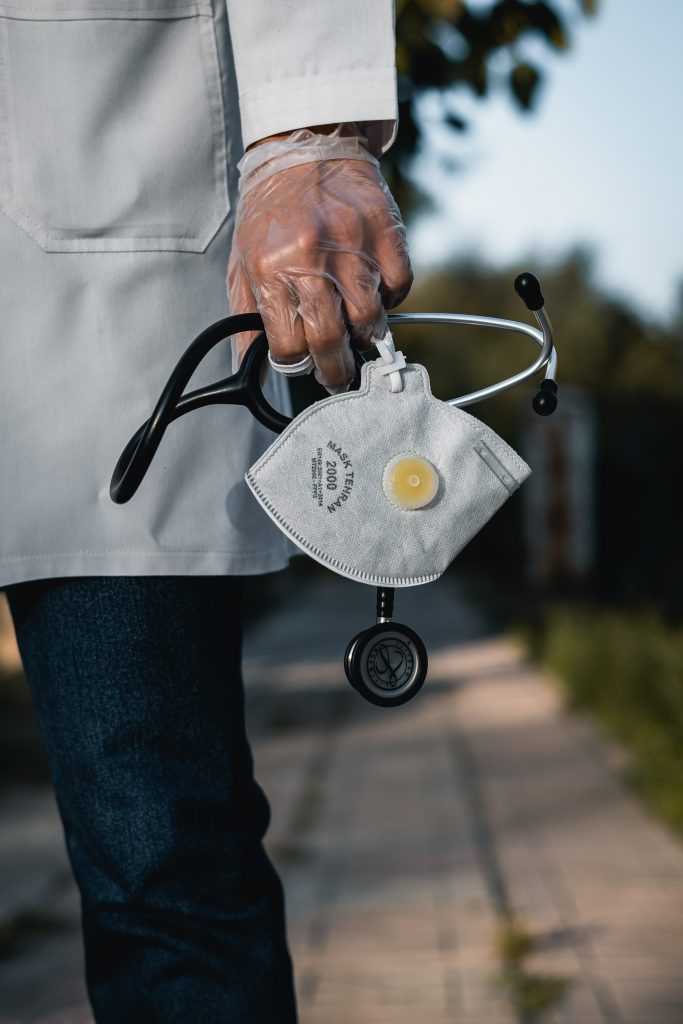Covid-The Existential Battle -Part 2
This is the second installment on “How Covid Has Changed Us.” In Part One of this series, I discussed what our core needs are and how they have been altered by the pandemic and how we can re-think our core beliefs
https://sawayer.com/how-covid-challenges-our-beliefs/
Part 2 is a step by step chronology that shows how our exposure to Covid was not instantaneous and because of the slow developments of the virus, no unilateral effective planning was done between infected countries or within the USA.
At First We Just Keep Moving Along
In February of 2020, Covid was just a news item about a new form of influenza. We are used to dealing with influenza and controlling it without much difficulty for many years.
The Covid 19 virus emerged in Woohan, China and killed large numbers of Chinese people.
Influenza is nothing new. We have known about various strains of influenza in the USA for many years. We have been well educated about mutations of the viruses over time. Each mutation would lead to a new vaccine.
Influenza strains historically, have resulted in death for certain vulterable groups every year. It turns out that this was not your Mommas influenza.
As the months went on, the rates of transmission outside of China promted the World Health Organization to sound the alarms. Still, word “Pandemic” was held at bay, for now.
Our inconsistent information from local governments, the news, social media, and conversations with friends or our doctors concealed the truth that a world wide pandemic was in the making. American ports on the Atlantic and the Pacific coasts, unregulated by governmental actions at first, were the first to unknowingly “welcome” the virus to our shores. News stories about cruise liners held off in international waters, loaded with infected passengers dying on board became daily fare. An American Aircraft carrier likewise made the news when the government relieved the Captain of his post after he become a whistle blower about the active Covid cases on his ship. The virus was now here in America and not somewhere out there. As Americans we are use to winning battles on all sorts of challenging fronts. Why would this enemy be any different? Our personal daily routines remained unchanged foe many months. Military resources were activated, from the Corps of Engineers, to the US Navy’s medical ships, to the various National Guards to assist the states in their efforts to control the disease. The drumbeat became constant as we heard about the scarcity of personal protective equipment (PPE’s) Early on, those were just needed primarily for the first responders and hospital staffs treating infected patients. Death rates began to increase for patients and for medical staffs. We listened to the news about how the first newly named virus, Covid 19, killed quickly. Then it was found to be difficult to control because of the incubation period that allowed it to remain stealth for an average of 14 days. In the meantime, we continued to make close contact with each other and share the same air without the use of masks. We were learning about this trickster disease the hard way. The words super-spreaders and a-symptomatic now became part of our everyday speech, and the word “Pandemic” was now understood in many languages worldwide. By this time, national and state governments understood that they had a responsiblity to assess what was happening, notify their citizens, and develop a game plan. In the absense of consistent messaging from the nations capital, the leaders in the State of New York became the voice of leadership, with their daily news briefings on the pandemic. New York State formed coalitions with other neighboring states to contain the virus and share resoures. The Ebola and AIDS epidemics were examined by epidemiological experts for any hints of how the lessons leaned from the successful conquering of those diseases could give us a battle plan for Covid. For too long, the mistake of looking at the Covid virus as just another variation of the yearly flu “virus”, kept the alarm from sounding. This was not your regular gorilla, this was Godzilla! Emergency rooms and ICU’s all over the globe filled rapidly. Medical interventions required speical techniques, equipment and interventions tall suddenly in short supply. This virus was effectively and parasitically sucking away the capacities of our internal organs to process oxygen. We were dying now because we couldn’t breath. This mechanism of death brought by Covid was initially thought to be a more intense type of upper resperatory illness. That perception would prove to be false. The virus was killing in ways that we did not understand from past pandemics. All of our decades of epidemiological research seemed useless. What was this thing? A perfect storm was forming, which in an ironic way, was fueled by the tradgic death of George Floyd. The irony of his last words as he pleaded for his life were, “I can’t breath”. Dying by suffocation was the birthplace for massive anxiety worldwide. Now there are lots of crummy ways to die, and some are crummier than others. Suffocation of one man being choked to death by the knee of another man who represented governmental authority, was something we were forced to witness nightly for months. When George Floyd was suffocated, we all experienced a hightened degree of personal truama, by repeatedly hearing about his slow merciless death. We identified so closely with this death cry of, “I can’t breath”, that massive protests blew up overnight, all over the world, demanding social justice for the oppressed. In the meantime, as States and Cities tried to cope with the violent protests, Covid 19 grew exponetially. Protesters could be seen in mass gatherings, without social distancing and without masks. This was not isolated to America, but rather was a worldwide occurance. Emotions ran high, and no one seemed to care or to understand how this group behavior would accelerated the spread of the disease and helped to overwhelmed an already stressed healthcare system. Initially, governments’ only meaningful way to control the disease without a vaccine, was to enforce social distancing by shutting down those parts of economies where people gathered in large numbers. Only later were personal protective items, such as wearing masks, “suggested” as a helpful way to prevent the spread of the virus. The mantra was, do what your local leaders are advising. It was also, stay in your own back yard, because our gates are locked! The last virus experienced in America was the flu pandemic of 1918. Very few living Americans remained from that experience who could identify with the massive impact from such a devastating public health event. The only information which local governmental leaders had about the 1918 pandemic was in the history books. We were without a reliable game plan for an enemy we could not identify. Battles fought with enemies who don’t wear recognized uniforms have always put our miltiary forces at a tactical disadvantage. Now our medical first responders were experiencing the same tactical disadvantage. Without an enemy to easily identify and vanquish, conspiracy theories, fake news items, and nefarious political party motivations, were credited as being responsible for letting the virus push us around and thereby allowed the mistrusted government to take away our personal freedoms of choice. Yes, fear led to irrationallity, and confusion, and then paranoia. Then, the perfect storm had new winds flowing into it from the political season. The American Presidential Elections seemed to complicate the ability or the willingness of politicians on the state level and nationally to take the lead in forming coherent, consistent, national leadership to fight the virus. This gave the virus another advantage….time! Other winds developed to help the perfect storm grow in it’s intensity in many other countries. The vast economic losses that the virus was causing as a result of forces social isolation meant business closure and unemployment. National leaders were watching helplessly as their economies tanked. Unemployment and poverty increased by multiples, almost overnigt. Panic and anger was setting in. The protests in the midsts of the pandemic continued and had turned into riots in some places. Polarizations increased politically, socially, culturally, sexually and educationally. The political grandstanding in the midst of the pandemic continued by all political factions. Mask wearing and social distancing were not mandated and large social gatherings of individuals who were not adhering to medical guidelines continued. Once effective testing and effective vaccines were available the die of mistrust of the government and authority had become permanent. Humans are social animals. Social isolation is known to cause many psychological problems ranging from anxiety to depression to suicide. Restricted movement, contsant testing of temperatures, constant wearing of masks, constant hand washing and the use of sanitizer, along with the constant social distancing are not easliy endured psychologically. People find themselves crying out for the old normal, for the good old days, for predictability, for freedom, for hope, for peaceful thoughts, for touch, for hugs, and yes, for jobs. Now enter the variants of Delta and Omicron and we again brace ourselves for another round of medical, psychological and existential assaults! The Uninvited Guest

Inconsistent Messaging from the Media and from Governments
Developing a game plan for an unfamiliar foe

And Then There Was The George Floyd Death

How Presidential and Congressional Political Races Made It Worse
Testing, Social Distancing, Sanitizing and Masks









